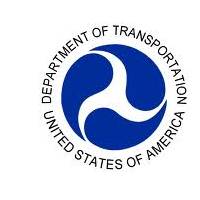MARAD Honors Memory of Richard Oliver Kelleher

Maritime Administrator David Matsuda today honored the memory of Richard Oliver Kelleher during the U.S. Department of Transportation’s National Maritime Day observation. Administrator Matsuda presented six posthumous awards to the family of Kelleher, whose death at sea during World War II symbolized the sacrifices of all U.S. merchant mariners. Accepting the awards was Kelleher’s brother, Herb Kelleher, founder of Southwest Airlines. Richard Kelleher, a fireman-watertender, was just 19 years old when he died while serving onboard the tanker SS PATRICK J. HURLEY.
U.S. MARAD Presents Posthumous Medals
On Thursday, May 19, 2011 at 10:00 a.m., as part of the U.S. Department of Transportation’s National Maritime Day observance, U.S. Maritime Administrator David Matsuda will award six posthumous Merchant Marine Medals to the family of Richard Oliver Kelleher, a merchant marine who was killed during World War II. Matsuda will present the medals to Richard Kelleher’s brother, Herb Kelleher, founder of Southwest Airlines. Established by Congress in 1933, National Maritime Day is Sunday, May 22, and honors the contributions of the American merchant marine. It is a day set aside to observe the nation’s maritime heritage and recognize the industry’s contributions to the nation’s economic and national security. Who: U.S. When: 10:00 a.m. U.S. Source: U.S.
A Maritime Lesson to be Learned from Aviation
The aviation industry learned a hard lesson earlier this year regarding regulatory compliance. While the lessons learned from the incident are many, the common theme that should be taken away by the maritime industry is that an owner and/or operator is responsible for compliance regardless of what individual regulatory personnel may say, accept, or even put in writing. For maritime companies without a compliance program, it has become common practice to rely primarily upon the opinions of individual Coast Guard inspectors or commands regarding regulatory compliance issues, despite occasionally receiving inconsistent guidance. What is wrong with this strategy? In the future another inspector may enforce a regulation which wasn't previously enforced.







